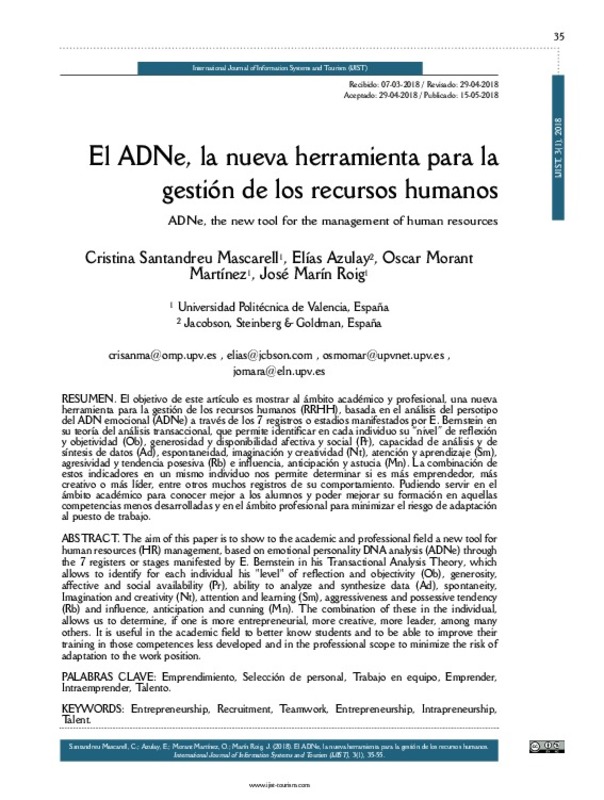JavaScript is disabled for your browser. Some features of this site may not work without it.
Buscar en RiuNet
Listar
Mi cuenta
Estadísticas
Ayuda RiuNet
Admin. UPV
El ADNe, la nueva herramienta para la gestión de los recursos humanos
Mostrar el registro completo del ítem
Santandreu Mascarell, C.; Azulay, E.; Morant-Martínez, O.; Marín-Roig Ramón, J. (2018). El ADNe, la nueva herramienta para la gestión de los recursos humanos. International Journal of Information Systems and Tourism. 3(1):35-55. http://hdl.handle.net/10251/116593
Por favor, use este identificador para citar o enlazar este ítem: http://hdl.handle.net/10251/116593
Ficheros en el ítem
Metadatos del ítem
| Título: | El ADNe, la nueva herramienta para la gestión de los recursos humanos | |
| Otro titulo: |
|
|
| Autor: | Azulay, Elías Morant-Martínez, Oscar | |
| Entidad UPV: |
|
|
| Fecha difusión: |
|
|
| Resumen: |
[ES] El objetivo de este artículo es mostrar al ámbito académico y profesional, una nueva herramienta para la gestión de los recursos humanos (RRHH), basada en el análisis del persotipo del ADN emocional (ADNe) a través ...[+]
[EN] The aim of this paper is to show to the academic and professional field a new tool for human resources (HR) management, based on emotional personality DNA analysis (ADNe) through the 7 registers or stages manifested ...[+]
|
|
| Palabras clave: |
|
|
| Derechos de uso: | Reconocimiento - No comercial (by-nc) | |
| Fuente: |
|
|
| Editorial: |
|
|
| Versión del editor: | http://www.uajournals.com/ijist-tourism/es/ | |
| Tipo: |
|







